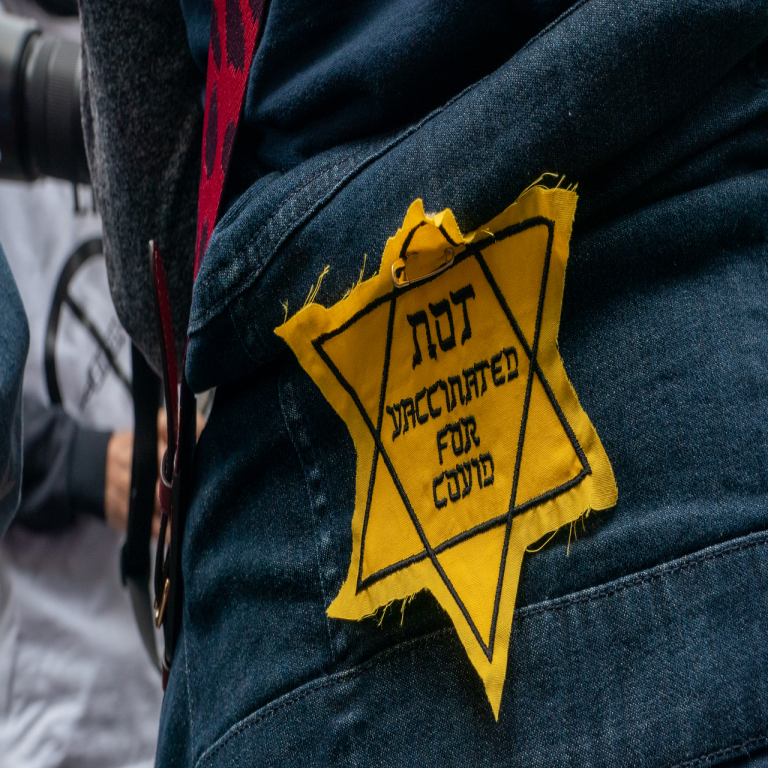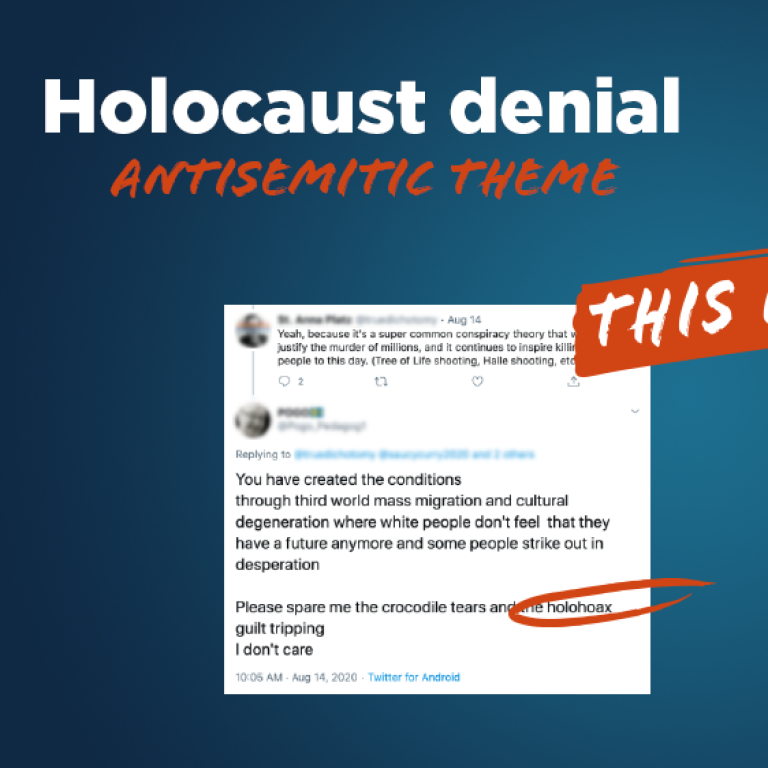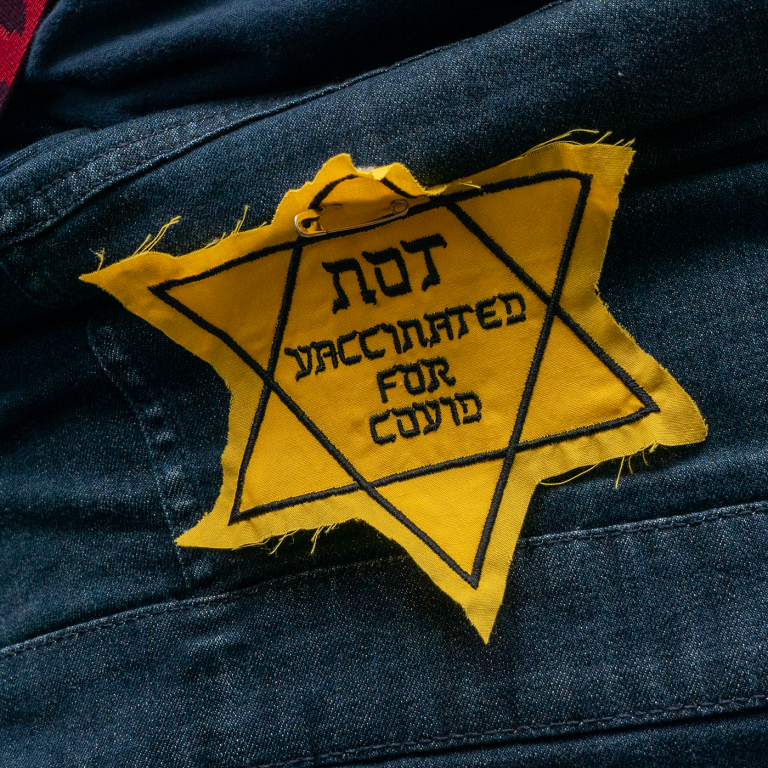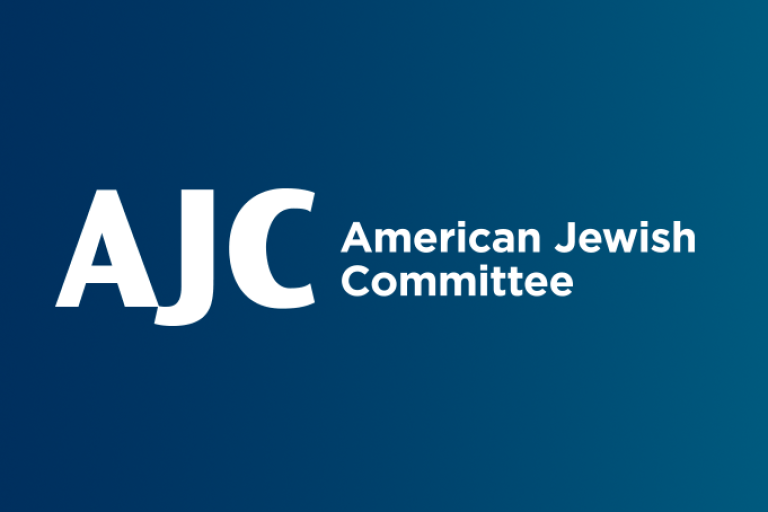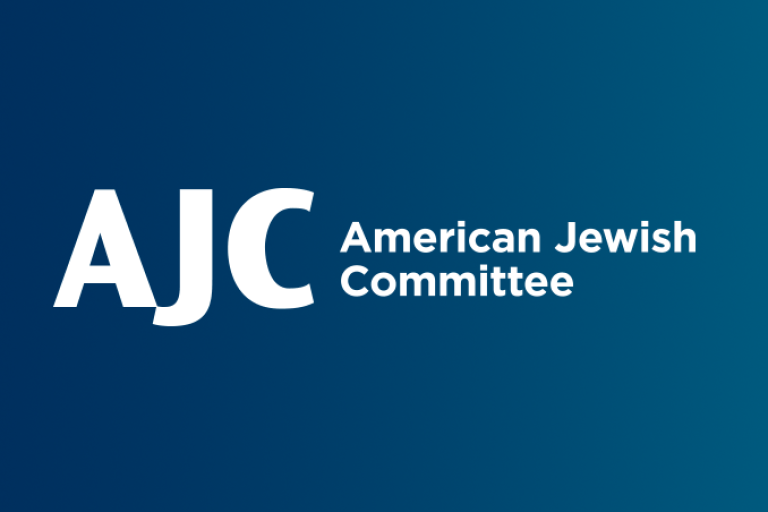November 21, 2021 — Dallas, Texas
This piece originally appeared in The Dallas Morning News.
By Joel Schwitzer and Alyssa Weiner
Thirty-nine percent of American Jews have taken at least one action in the past year to conceal their faith identity.
The annual American Jewish Committee report on the State of Antisemitism in America found that 22% of Jews avoided publicly wearing, carrying or displaying things that might identify them as Jewish; 17% avoided certain places, events or situations out of concern for their safety as a Jew; and 25% avoided posting content online that would identify them as a Jew or reveal their views on Jewish issues.
In addition, 24% of American Jews said a Jewish institution they are affiliated with has been the target of at least one of the following over the past five years: antisemitic graffiti, antisemitic threats or antisemitic attacks.
Jews in the South reported feeling more physically vulnerable than in any other U.S. Census region. Of the 364 Jewish respondents from the South who participated in the AJC survey, about 6% said they were the target of antisemitic physical attacks. The average for the other three census regions were only a handful, 1%.
A series of disturbing incidents in the past month illustrate the concerns. An Austin synagogue was vandalized by an arsonist. It followed a week riddled with antisemitic incidents around the Austin area. Closer to home, confusion over HB 3979 recently led to a Southlake Carroll ISD administrator advising teachers to “teach an opposing view of the Holocaust.”
Jewish community members and allies should point to this comment about the Holocaust when making the case for policymakers to increase resources for Jewish community security, educational endeavors and interfaith work.
In mobilizing all sectors of Texas society to fight antisemitism, it is critical to ensure that memory of the Holocaust is preserved and, importantly, that knowledge about the Nazi-organized murder of 6 million Jews is commonplace.
Holocaust education differs widely across the country — both the curriculum guidelines in each of the 38 states that mandate teaching about the Holocaust, and the number of young Americans who know and understand what happened during that tragic era.
Last year’s U.S. Millennial Holocaust Knowledge and Awareness Survey by the Claims Conference conducted state-by-state assessments of Holocaust knowledge among millennials and Generation Z. The findings are cause for concern, especially in Texas.
More than half of young Texans could not name a single concentration camp or ghetto out of the 40,000 sites in Europe in which Jews were imprisoned, tortured and killed. Of the Texans surveyed, 47% had no idea what Auschwitz was. Over 60% didn’t know that 6 million Jews died in the Holocaust.
Even more alarming: Over half of young people in Texas have seen Holocaust distortion or denial on social media or elsewhere online, and almost two-thirds (64%) have seen Nazi symbols in their community or on social media in the last five years.
Texas leaders have recognized the severity of the issue and acted. In 2009, state legislators passed SB 482 to form the Texas Holocaust and Genocide Commission to provide resources to students, educators and the general public regarding the Holocaust and other genocides.
Earlier this year, Gov. Greg Abbott signed into law HB 3257, expanding the commission’s mandate to become the Texas Holocaust, Genocide and Antisemitism Advisory Commission. Notably, this body recognizes the International Holocaust Remembrance Alliance’s Working Definition of Antisemitism, widely considered the premier description of antisemitism and examples of hate targeting Jews. The law also requires biennial studies of antisemitism in Texas, in addition to the commission’s existing Holocaust mandate
Holocaust education is favored by the general American population. While 24% of Americans over the age of 18 said their level of knowledge about the Holocaust is not much (14%) or nothing at all (10%), according to AJC’s 2020 State of Antisemitism in America report, 90% think it is important for schools to teach middle and high school students the history of the Holocaust.
AJC’s recent report made clear that 90% American Jews and 60% of the general population consider antisemitism a problem in our society today. Elected officials and influencers should remember that as we look to them to speak out against antisemitism and all forms of hatred, to stand up against acts of vandalism against minority communities and to condemn all efforts to politicize or make contemporary comparisons to the Holocaust.
There can be no complacency in this battle.
Joel Schwitzer is director of American Jewish Committee Dallas Region.
Alyssa Weiner is associate director for combating antisemitism for AJC.

